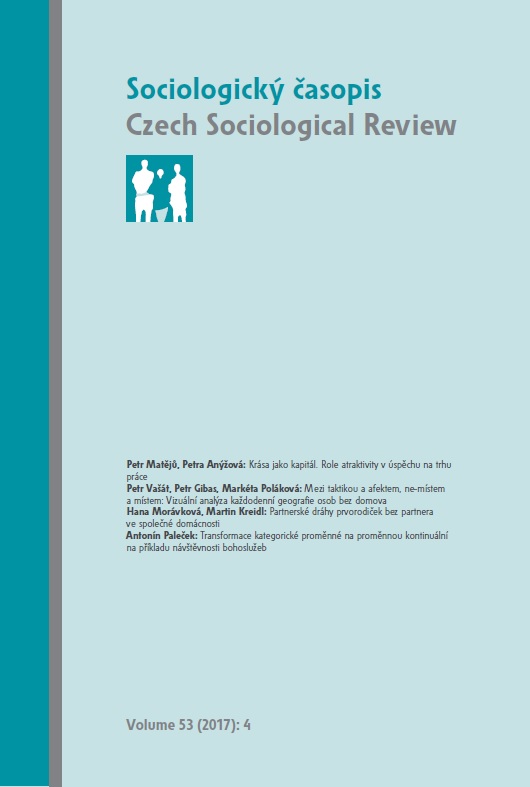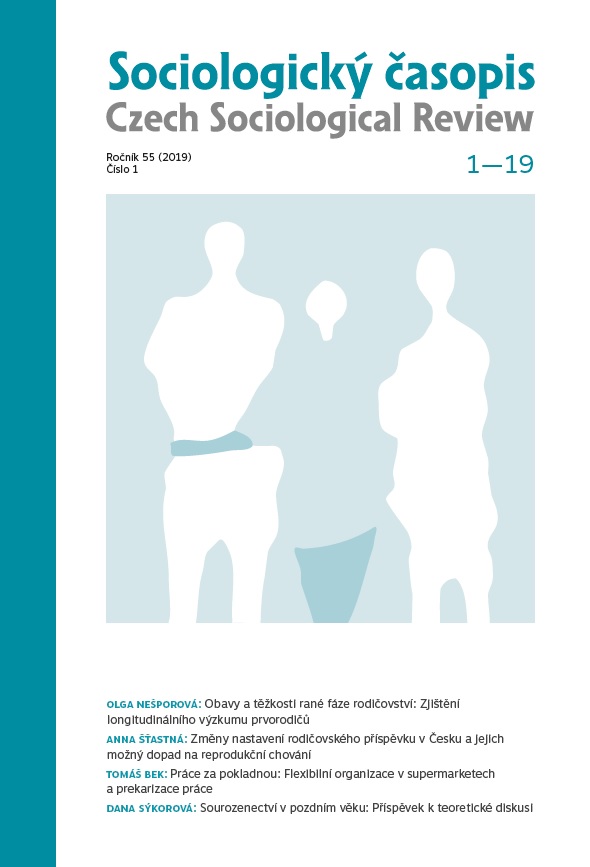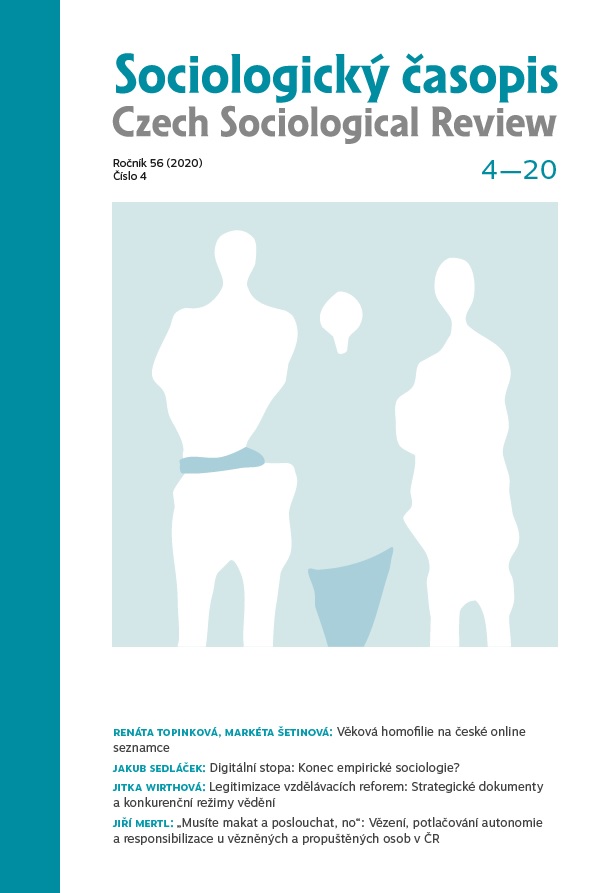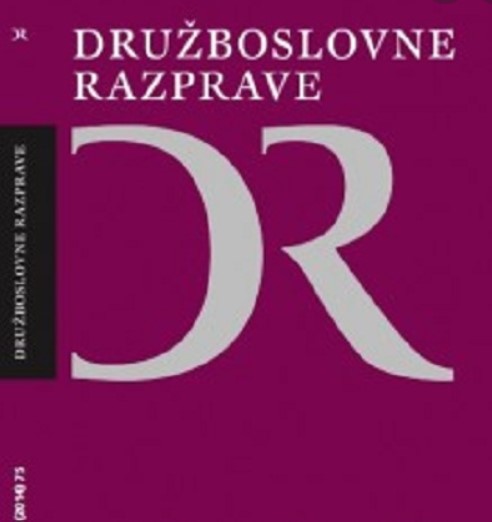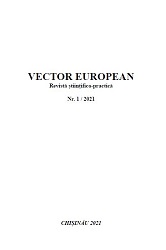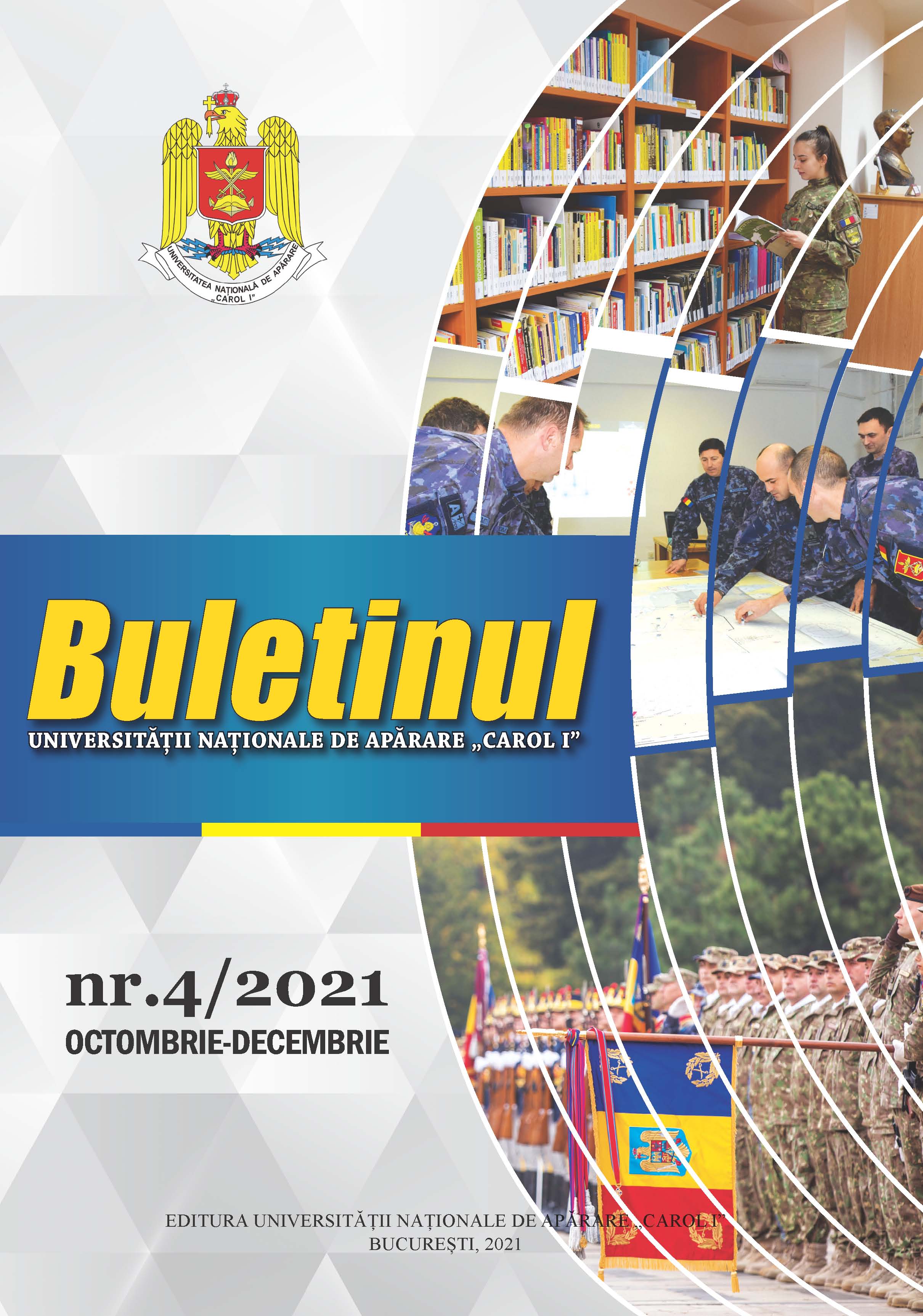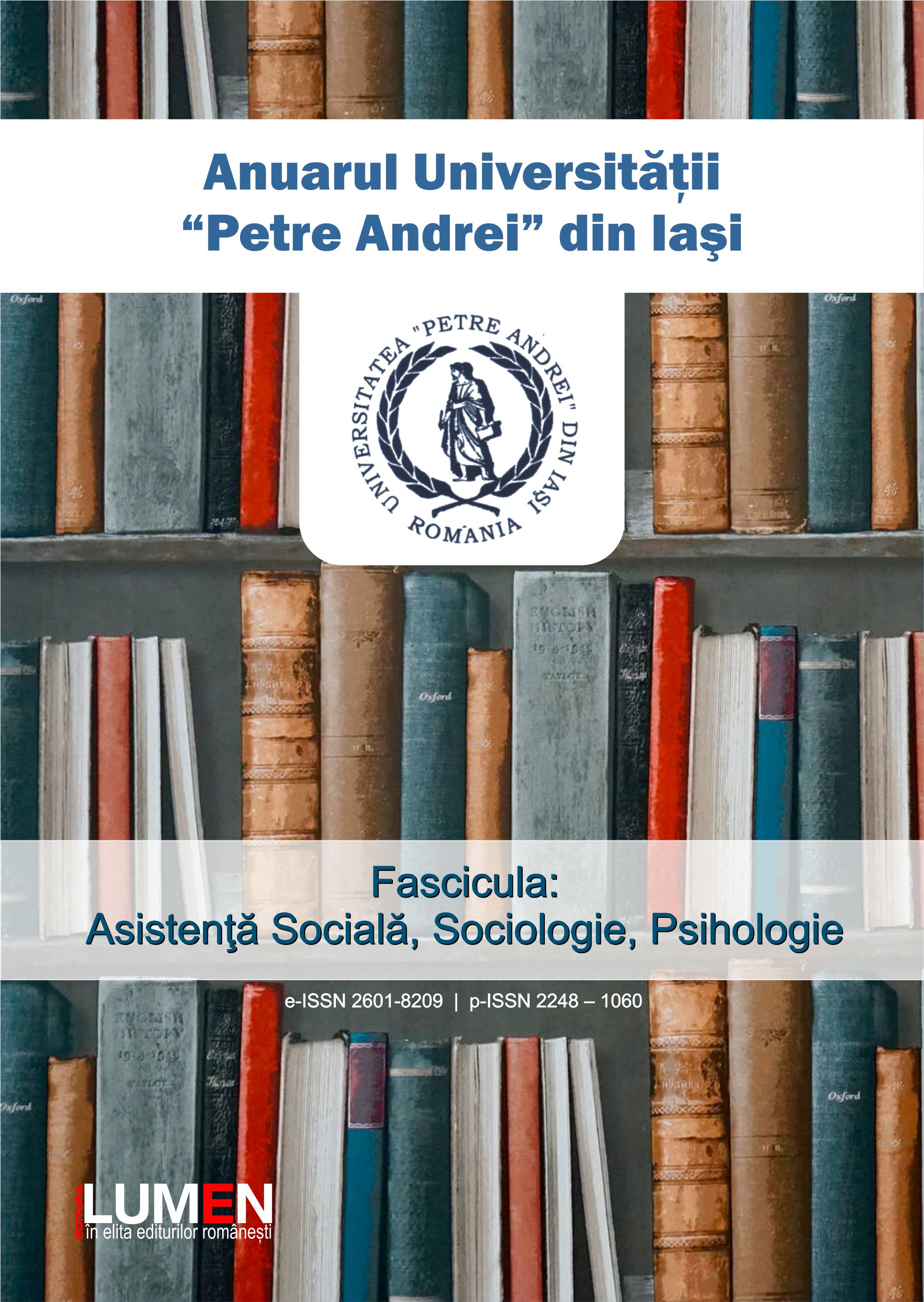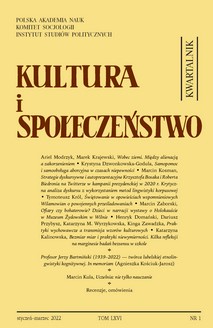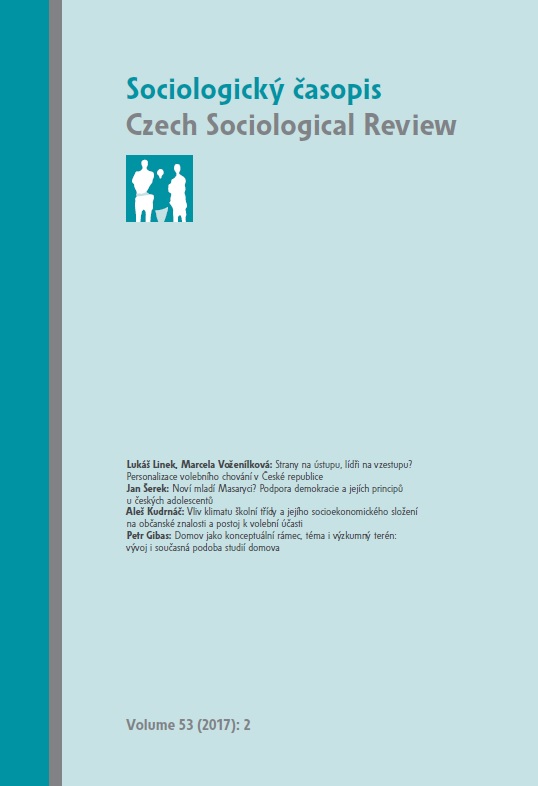
Domov jako konceptuální rámec, téma i výzkumný terén: vývoj i současná podoba studií domova
Over the past thirty years there has been a substantial change in how home is understood in the social sciences. While it is still possible to discern the influence of phenomenology on contemporary thinking about home, the studies presently at the forefront of the geography, anthropology, and sociology of home largely reflect the impact of critical social theory and the cultural and spatial turn in the social sciences, and they have also made the lines between these disciplines blurrier. This article primarily aims to provide readers with an overview of the developments in the field and to explore contemporary approaches to home as a complex and multifaceted phenomenon. It also seeks to unravel the developments and topical shifts in (largely English-language) studies of home and to present the current Czech approach to the issue, which are both influenced by the contemporary focus on home as the site of the continuous production, consumption, and negotiation of meanings and identities, and by an emphasis on the everyday experience of home.
More...
